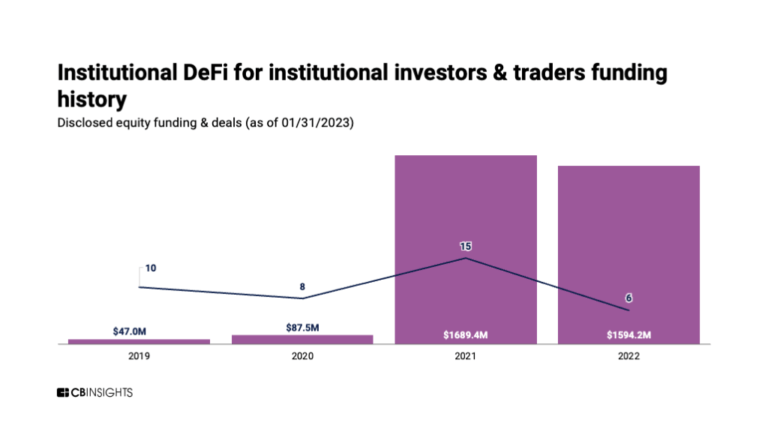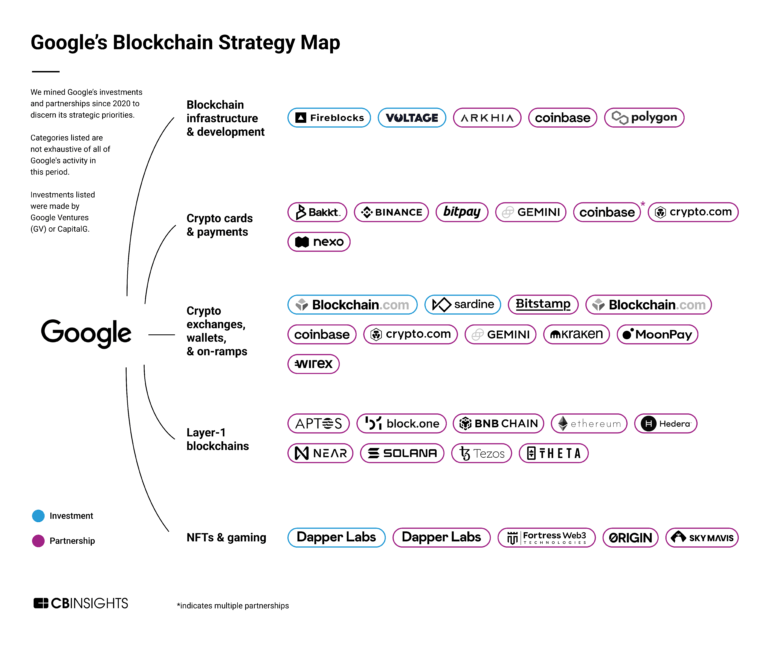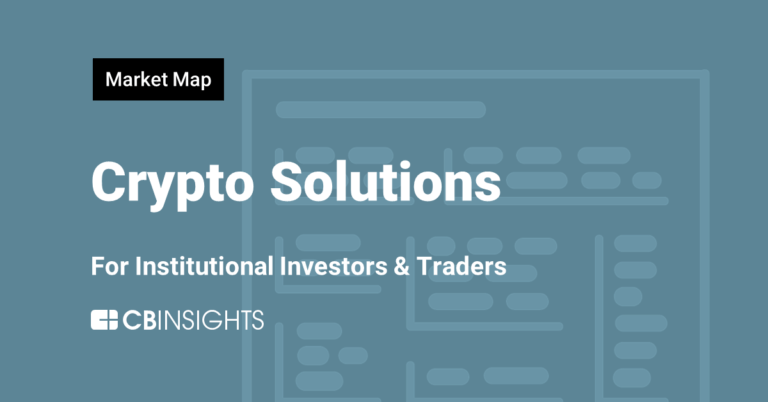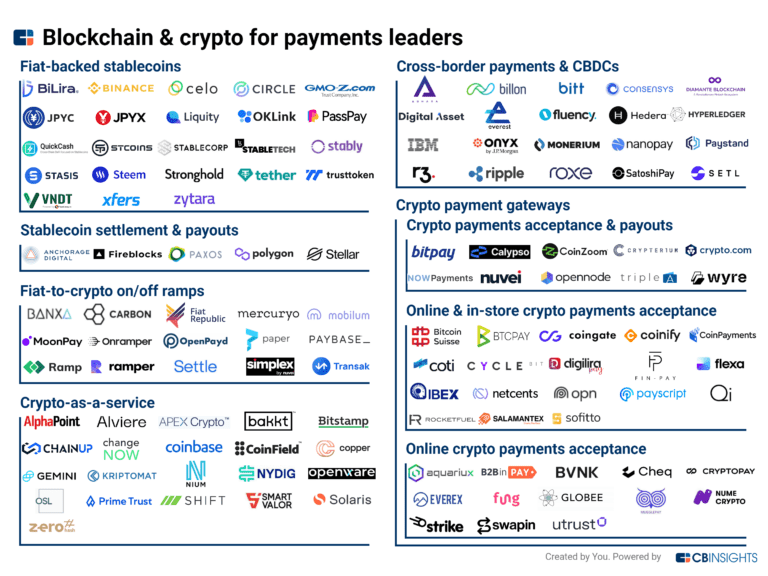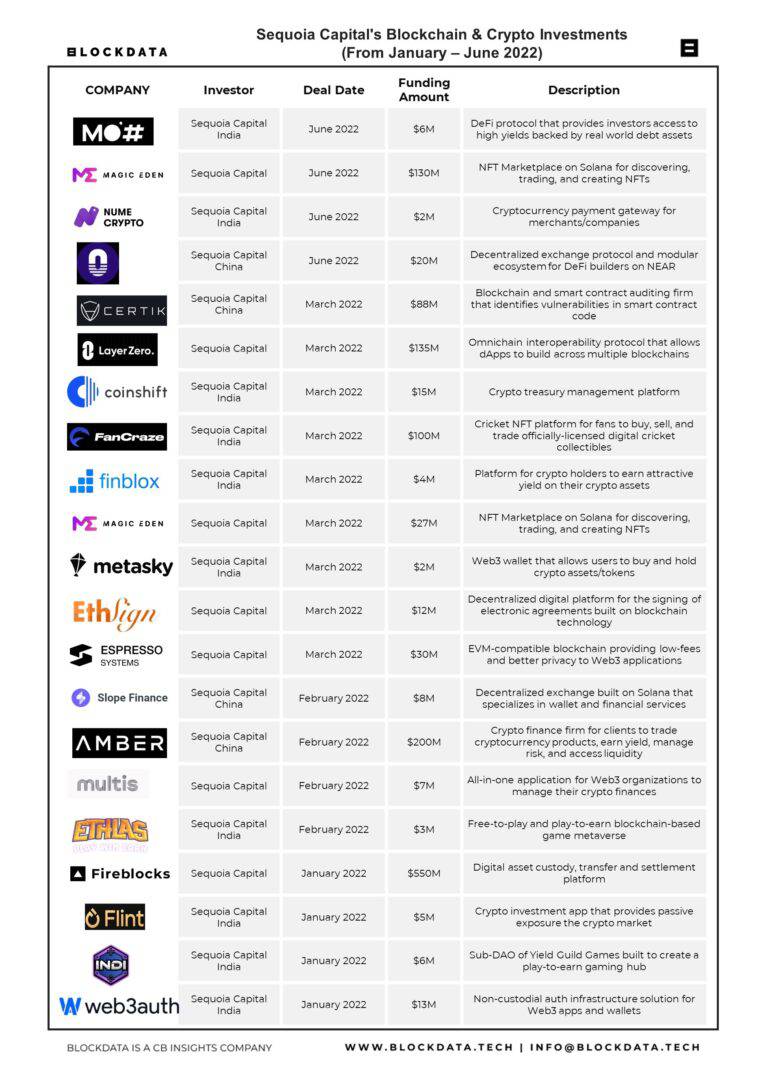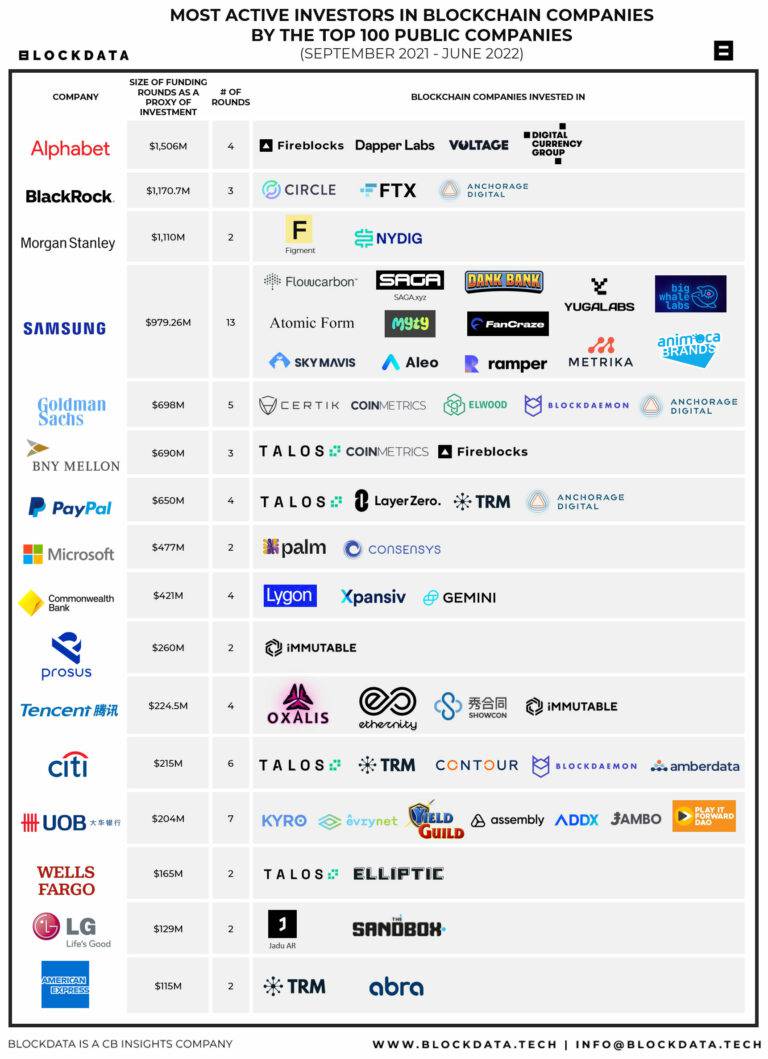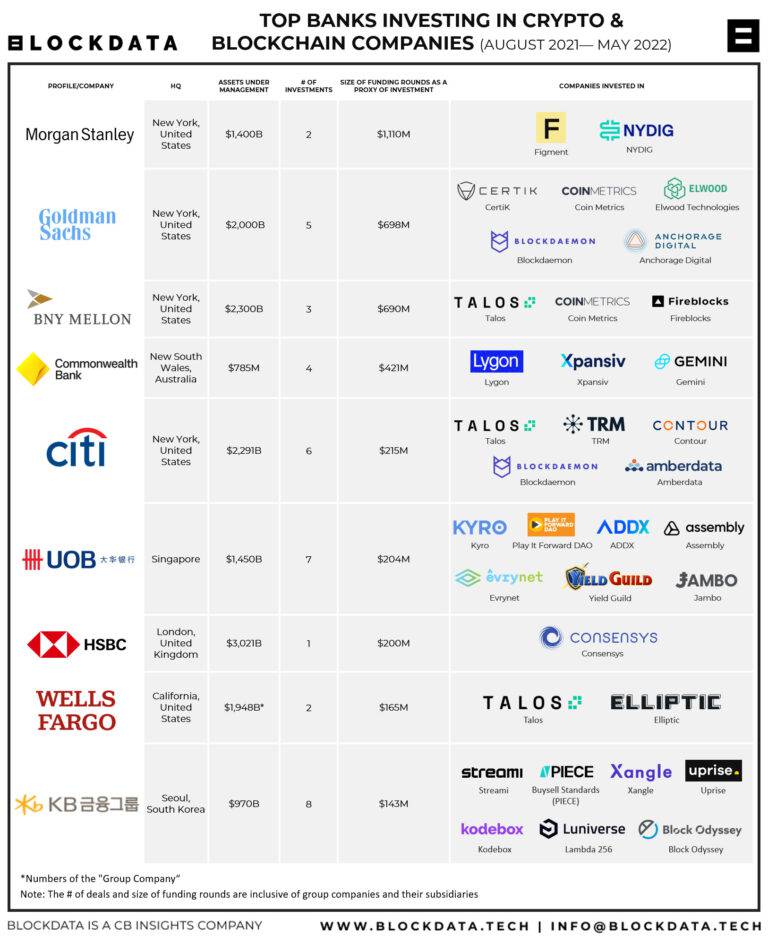
Fireblocks
Founded Year
2018Stage
Unattributed VC | AliveTotal Raised
$1.039BMosaic Score The Mosaic Score is an algorithm that measures the overall financial health and market potential of private companies.
+40 points in the past 30 days
About Fireblocks
Fireblocks is an enterprise-grade platform that specializes in secure infrastructure for moving, storing, and issuing digital assets within the blockchain and cryptocurrency sectors. The company offers a suite of applications for digital asset operations management and a comprehensive development platform for building blockchain-based businesses. Fireblocks' solutions cater to a variety of sectors, including financial institutions, exchanges, and fintech startups. It was founded in 2018 and is based in New York, New York.
Loading...
ESPs containing Fireblocks
The ESP matrix leverages data and analyst insight to identify and rank leading companies in a given technology landscape.
The institutional staking market provides platforms to institutional investors, crypto platforms, and investment funds looking to earn yield on their digital assets through staking. Staking involves holding and locking up cryptocurrencies to support the network and validate transactions, earning rewards in return. The market offers solutions for managing and securing digital assets, as well as pro…
Fireblocks named as Leader among 15 other companies, including BitGo, Gemini, and Ledger.
Loading...
Research containing Fireblocks
Get data-driven expert analysis from the CB Insights Intelligence Unit.
CB Insights Intelligence Analysts have mentioned Fireblocks in 10 CB Insights research briefs, most recently on Feb 23, 2023.
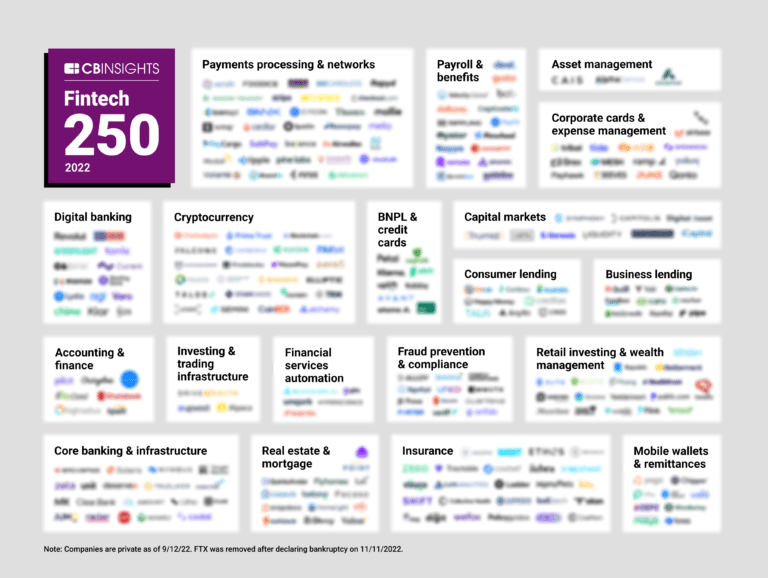
Oct 4, 2022 report
The Fintech 250: The most promising fintech companies of 2022Expert Collections containing Fireblocks
Expert Collections are analyst-curated lists that highlight the companies you need to know in the most important technology spaces.
Fireblocks is included in 6 Expert Collections, including Unicorns- Billion Dollar Startups.
Unicorns- Billion Dollar Startups
1,258 items
Blockchain
12,588 items
Companies in this collection build, apply, and analyze blockchain and cryptocurrency technologies for business or consumer use cases. Categories include blockchain infrastructure and development, crypto & DeFi, Web3, NFTs, gaming, supply chain, enterprise blockchain, and more.
Fintech
9,394 items
Companies and startups in this collection provide technology to streamline, improve, and transform financial services, products, and operations for individuals and businesses.
Blockchain 50
100 items
Fintech 100
499 items
250 of the most promising private companies applying a mix of software and technology to transform the financial services industry.
Silicon Valley Bank's Fintech Network
88 items
We mapped out some of SVB's biggest clients, partnerships, and sectors that it serves using CB Insights’ business relationship data from SVB’s profile to uncover just how important it is to the fintech universe. The list is not exhaustive.
Fireblocks Patents
Fireblocks has filed 4 patents.
The 3 most popular patent topics include:
- alternative currencies
- bitcoin
- cryptocurrencies

Application Date | Grant Date | Title | Related Topics | Status |
|---|---|---|---|---|
11/29/2021 | 8/20/2024 | Data security, Computer security, Cryptography, Computer network security, National security | Grant |
Application Date | 11/29/2021 |
|---|---|
Grant Date | 8/20/2024 |
Title | |
Related Topics | Data security, Computer security, Cryptography, Computer network security, National security |
Status | Grant |
Latest Fireblocks News
Jan 27, 2025
Like The following is a guest article from Thomas Labenbacher, Founder and CEO of Assetera. As the crypto industry leaves 2024 on a high note — marking a year filled with explosive growth — 2025 shapes up to become quintessential for the industry’s evolution. The surge in real-world asset (RWA) tokenization and institutional influx in crypto will accelerate, driven by five key sectors showing the most explosive growth potential. Each of these trends will have major implications for the future of finance. Tokenization transforms market liquidity The far-reaching impact of tokenizing traditional real-world assets (RWAs) will become pronounced in 2025, massively improving liquidity and broadening market access, and bringing about a shift in how we think about asset ownership and trading. Tokenization will enhance traditionally illiquid assets through fractional ownership and 24/7 trading on blockchain platforms, enabling smaller players to access previously institutional-only assets. The tokenized asset market is projected to reach $5 trillion , up from around $310 billion in 2022, with real estate comprising $1.4 trillion and bonds $1 trillion. Fractional ownership could attract 20%–30% more retail investors, while over 80% of institutional investors are expected to adopt tokenization. The liquidity premium for illiquid assets could reach 5%–20%, with real estate seeing up to 60% improvement in liquidity compared to traditional investments. The US, EU, and Asia will dominate tokenization adoption, accounting for over 85% of the market. In a clear sign of market maturation, the number of tokenized securities listed on blockchain-based platforms is expected to grow by 200%. And as the market for tokenized assets expands, the regulatory framework surrounding these innovations is evolving to keep pace. Major regulatory shifts reshape the landscape The regulatory environment isn’t standing still – far from it. Global regulatory frameworks will create more clarity for digital securities in 2025, marking a crucial evolution in how these assets are governed and traded. This development comes at a critical time, as the industry has long sought clearer guidelines to operate within. New unified regulations will promote cross-border trading and reduce legal ambiguities, while compliance tools integrating blockchain analytics will streamline regulatory adherence. These are substantial changes that will open new doors for market participants. The impact is already becoming visible: markets compliant with frameworks like MiFID, MiCAR, and DLT in the EU could witness a 30%–40% growth in institutional participation. In fact, over 80% of jurisdictions worldwide are expected to implement clear digital asset regulations, up from 50% in 2023. To support this regulatory evolution, the number of regulated tokens is projected to grow 50% annually, with compliance software reaching $6 billion by 2025. With clearer regulations providing a stable foundation, traditional financial institutions are increasingly recognizing the potential of tokenized assets. Rise of institutional participation drives maturity Next year, the industry will likely see a potential rise in institutional investments driven by improved infrastructure, custody solutions, and risk management tools. As more big players enter the market, it fundamentally strengthens the ecosystem. Among the main incentives for institutions to increasingly participate in secondary markets are better custody solutions and reduced settlement times made possible by blockchain-based infrastructure. To address the sophisticated needs of institutional investors, risk management tools, including smart contract audits and automated compliance systems, will address operational and regulatory risks, while specialized custodians bridge traditional finance and blockchain-based trading. Institutional trading in digital assets including stablecoins is expected to grow from 35% of the total market volume in 2023 to 50% in 2025, contributing $5–$6 trillion annually. Institutions will likely contribute more than 70% of liquidity in secondary markets for tokenized securities, bolstered by enhanced blockchain infrastructure and reduced settlement times. At the same time, real-time settlement enabled by blockchain could save institutions $10 billion annually by eliminating traditional clearing processes. In the custody space, leading providers like Fireblocks, Anchorage, and BitGo are projected to secure $5 trillion in digital assets by 2025, up from $1.5 trillion in 2023. As institutional adoption grows, the need for better integration paths between different blockchain networks becomes increasingly important. The evolution of interoperability enables cross-market trading Perhaps one of the most exciting developments on the horizon is how advances in blockchain interoperability will enable seamless trading across platforms and jurisdictions in 2025, allowing assets issued on one blockchain to be traded seamlessly across multiple platforms and jurisdictions via interoperability protocols that enable cross-chain transfers to foster a unified ecosystem for secondary markets. This will reduce fragmentation, allowing traders and investors to access global liquidity pools without switching between isolated networks, and increase the growth rate of cross-border trading by eliminating barriers like currency exchange limitations and local custodianship. Still, regulatory harmonization will remain a key challenge, requiring close collaboration between technology providers and policymakers. The potential impact is substantial: interoperable networks could handle over 50% of tokenized transactions , with cross-chain potentially doubling trading volumes versus single-chain competitors. Looking at the broader ecosystem, up to 70% of secondary market platforms could adopt cross-chain solutions through more than 150 operational bridges , gradually moving away from those that in the past suffered from security vulnerabilities, enabling seamless interoperability between blockchain ecosystems. Wrapped assets are also expected to represent $1 trillion in tokenized value across chains by the end of 2025, with cross-chain platforms reducing transaction finality times by 40%–60% and improving capital efficiency and trading speeds. While traditional institutions are embracing tokenization, parallel innovations in decentralized finance are reshaping how these assets can be traded and managed. Faster adoption of decentralized platforms accelerates transformation The final trend we’re seeing emerge is how various DeFi models will continue to increase the significance of their role in facilitating peer-to-peer secondary market trading with minimal intermediaries, becoming increasingly prominent. This changes everything with respect to how we think about financial intermediation. As a result, DeFi trading volumes in secondary markets are projected to hit $500 billion annually by the end of 2025, a 200% increase from 2023, while liquidity pools for tokenized assets could manage over $80 billion in assets, providing instant trading capabilities. Platforms will also use smart contracts to automate investor rights such as voting and dividend payments, attracting more institutional participation. Ultimately, DeFi adoption among institutional users could increase to 30% — compared to less than 10% in 2023 — due to improved governance and risk management tools. 🌎 Top RWA Crypto Assets
Fireblocks Frequently Asked Questions (FAQ)
When was Fireblocks founded?
Fireblocks was founded in 2018.
Where is Fireblocks's headquarters?
Fireblocks's headquarters is located at 500 Fashion Avenue, New York.
What is Fireblocks's latest funding round?
Fireblocks's latest funding round is Unattributed VC.
How much did Fireblocks raise?
Fireblocks raised a total of $1.039B.
Who are the investors of Fireblocks?
Investors of Fireblocks include Haun Ventures, Tenaya Capital, BAM Elevate, Paradigm, Coatue and 26 more.
Who are Fireblocks's competitors?
Competitors of Fireblocks include Ripple, CheckSig, Taurus, Ledger, BitGo and 7 more.
Who are Fireblocks's customers?
Customers of Fireblocks include Customer Name: Revolut , Crypto.com and GMO Trust.
Loading...
Compare Fireblocks to Competitors

Copper is a technology company that focuses on providing secure digital asset services to institutional investors within the cryptocurrency sector. The company offers a suite of solutions, including institutional custody, prime brokerage services, and collateral management, all designed to facilitate secure and efficient digital asset transactions. Copper primarily caters to hedge funds, trading firms, foundations, exchanges, ETP providers, venture capital funds, and miners seeking advanced infrastructure for managing digital assets. It was founded in 2018 and is based in Zug, Switzerland.

BitGo provides solutions for the digital asset economy within the financial technology sector. Its offerings include custody, digital asset wallets, and financial services such as trading, borrowing, lending, and staking, which are used to manage digital assets. BitGo serves institutional clients, cryptocurrency exchanges, and investment platforms with services designed for the crypto space. It was founded in 2013 and is based in Palo Alto, California.

Ledger specializes in the security and management of digital assets in the cryptocurrency domain. The company offers hardware wallets for storing cryptocurrencies, as well as a companion application for managing and interacting with digital assets. Its products are available for individual consumers and institutional investors, focusing on storage, transaction, and portfolio management. The company was founded in 2014 and is based in Paris, France.

Hex Trust is a fully-licensed digital asset custodian that specializes in providing secure solutions for the management and safeguarding of digital assets within the financial sector. The company offers a range of services, including institutional-grade custody, access to decentralized finance (DeFi) markets, and staking, all underpinned by rigorous security and compliance measures. Hex Trust caters primarily to financial institutions, protocols, foundations, and entities within the Web3 and metaverse ecosystems. It was founded in 2018 and is based in Hong Kong.

Anchorage Digital is a financial technology company that provides access to the digital asset ecosystem for institutions. Its services include custody, staking, trading, governance, and settlement of digital assets. Anchorage Digital serves the financial sector, including registered investment advisors, venture capital firms, asset managers, and ETF issuers. It was founded in 2017 and is based in San Francisco, California.
Vaultavo is a Digital Asset Custody and Security Tech Provider specializing in the finance, crypto, blockchain, DLT, and web3 domains. The company offers a range of products including a biometric smart card for secure digital key management, secure vaults for asset storage, and a SaaS platform to facilitate digital asset transactions. Vaultavo's solutions cater to institutions and businesses seeking advanced custody and self-custody of private keys, with a focus on security, accessibility, and ease of use. It was founded in 2021 and is based in New York, New York.
Loading...
